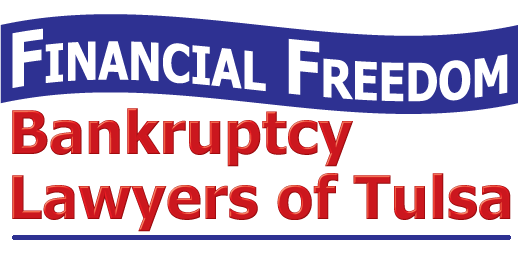Oklahoma Bankruptcy HelpIs What This Oklahoma Debt Collector Doing Legal?
 Owing past-due debts of any kind can be a frightening experience, especially when an Oklahoma debt collector calls.
Owing past-due debts of any kind can be a frightening experience, especially when an Oklahoma debt collector calls.
We dread phone calls and spend sleepless nights worrying about how to come up with the money we need to pay for the basics.
If you are contemplating filing bankruptcy in Tulsa, you are surely receiving repeated telephone calls and letters from bill collectors.
These people are good at their jobs. They are trained and paid to make you feel as bad as possible so you will pay your debt. Engaging with them can make your stomach turn.
Most of the debt these collectors are after is usually unsecured, credit card debt. Unsecured debts were not incurred to buy property.
There are federal and state Oklahoma debt collector laws that were enacted to protect the debtor, but you must know what the laws protect and what they do not. There is no substitute for knowing your rights under the law.
Fair Debt Collection Practices Act
The Fair Debt Collection Practices Act (FDCPA) is a set of federal laws enacted to protect debtors from unfair collection practices on the part of creditors. It specifies a number of activities that a bill collector must do and a number of prohibited practices.
When a debt collector contacts you for the first time, the debt collector must notify you in writing that they are collecting a debt and any information obtained will be used for that purpose. Many debt collectors will make the same statement during each phone call or letter with you.
In the first contact, a debt collector must also inform you:
- of the name of the creditor and the balance;
- that you have the right to dispute the debt; and
- that you may seek validation by making a written demand for validation within 30 days of receiving their collection letter.
A bill collector must identify himself as such during every telephone call or letter. And unless you consent, a debt collector may not call outside the hours of 8 a.m. to 9 p.m. in your time zone.
Legally, a creditor may choose to stop doing business with you. If you request that the creditor stop contact, the creditor must comply. This type of request is always best done by letter. Keep copies of all correspondence between you and a debt collector or creditor.
A bill collector may not show up at your place of employment to discuss the debt. Nor can they harass you with repeated phone calls, threats of violence, publishing information about you, or use abusive or obscene language with you. All of these practices constitute harassment, and all are illegal.
They can, however, pressure you with daily calls and frequent letters. Some bill collectors push the edge of the law and even outright violate it. There are things you can do to protect yourself.
A creditor may sue you for the debt owed. This can result in wage garnishments or bank levies to satisfy the debt.
Fight an Oklahoma Debt Collector
Keep all of your communications in writing. You can request that all communications be in writing and that will stop the phone calls. Keep a copy and mail it through a traceable form of delivery.
If you don’t believe the debt is yours, send a letter and keep good records. If you need more help, seek the services of a Tulsa bankruptcy attorney.
Low-cost Bankruptcy Planning: Tulsa Bankruptcy Lawyer
To get the best possible outcome in your bankruptcy case, you will need to set expectations for yourself and also understand your attorney’s expectations of you.
To receive your low-cost initial bankruptcy analysis, call the Freedom Financial Bankruptcy Lawyers of Tulsa today at 918-786-9600.




